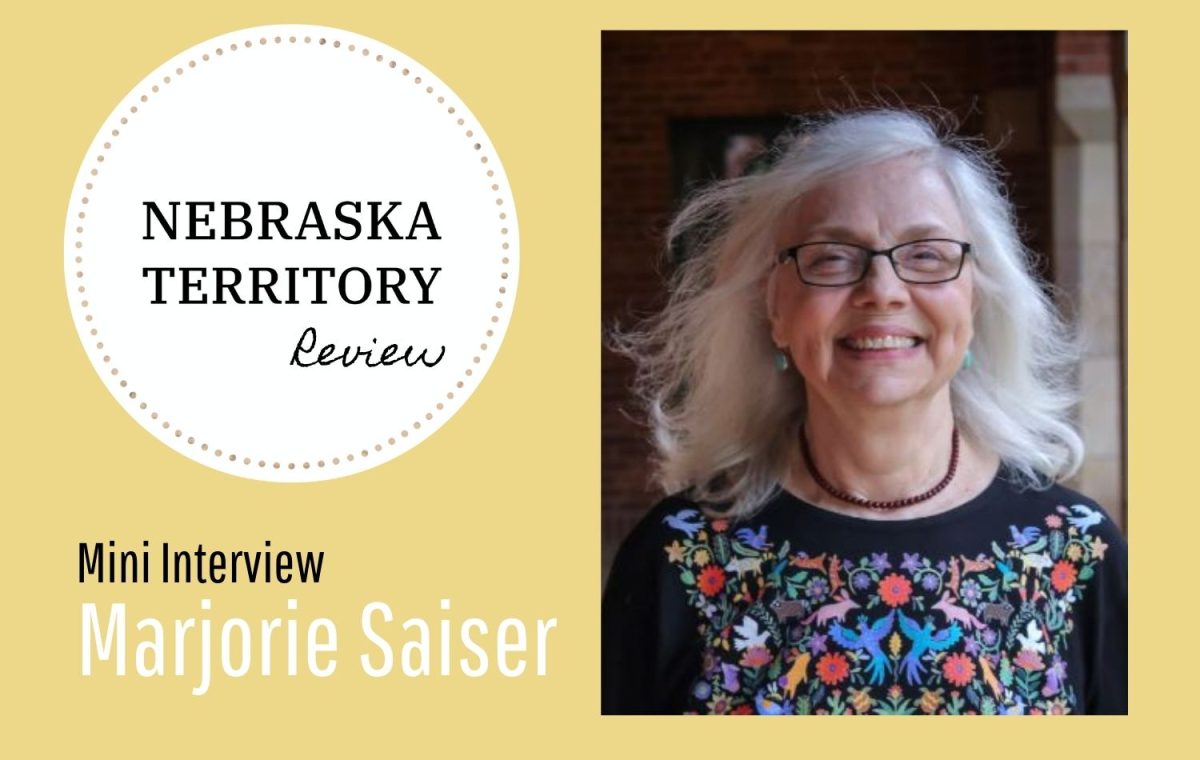What is your reason for writing? Or what role does writing play in your life?
I write to find out, to stay green, to keep learning. Writing teaches me what I should be paying attention to.
Do you have a particular time, place, or routine for writing?
Early mornings are good, also at night. Afternoons don’t work for much, except revision.
Which writers inspire you, and in what ways?
Recently I have been listening to the poet Maggie Smith. I see how she uses poems as a probe, a light, and that sometimes she shows her process in the poem itself. And I see how she is very much immersed in her family, and yet she writes. Also, recently I heard the fiction writer Tom Paine say something that sticks with me: Our work as writers is to report. If you take two steps forward and one step back, report on that.
How have you evolved creatively?
To keep going is so important. I hope my education never ends (Bill Kloefkorn said that, and showed that). Workshops around the country have helped me turn some corners. The writing pressure in workshops by Dorianne Laux, Joyce Sutphen, workshops at KANEKO, the Tucson Poetry Center, Northwoods at Bemidji, the inspiration of Karen Shoemaker’s workshops, I am truly grateful for these.
Do you use specific techniques or activities to help you recall memories or to aid your reflective process?
Novelist/poet Lucy Adkins taught me to use the Pomodoro Technique: set your timer for 25 minutes and don’t lift your head, just keep writing, ready or not. Sometimes when I’m stuck, I use this technique to find out what I should be writing.
Through the writing in your latest books—The Woman in the Moon, which won a 2019 Nebraska Book Award, and Learning to Swim, released in September 2019—it’s clear that you find significance in everyday details. What is that process like, or how do those connections develop for you?
Every once in a while, I take a writing retreat in a cabin, either alone or with other writers. We stay silent and write side by side, not collaborating, but keeping to a schedule.
Writing groups are a part of my process, not only for the critique, but to give one another prompts. There’s something good about the scratching of pens or clicking of keys around you—the others are writing away, so you might as well keep going too.
I often pack up my work and go to a coffeehouse to write or revise. It makes no sense—I have good places to write at home, but it’s like going to the office: I arrive and I get to work.
Walking outdoors is a big part of my process, not that I write about the passing scene, but it puts me in a serene frame of mind. It helps shake off the to-do list running in my head, gets me ready to journal. Often at the end of a journaling page, I have snagged a topic/memory, or it has snagged me. I begin with an image or phrase that has fallen out of the ceiling and I follow the writing to see where it will go.
I write with a pen and paper, but then immediately I have to type it, get it on a screen, and begin to shape it, get rid of what doesn’t belong. I love to revise, both right away and also after the piece has cooled off. Days/weeks/months/ later I will sit with it and revise it.
Often when my husband is driving, I write in the car because the world is streaming by on both sides and that gives my monkey mind something to keep it busy so the writing part can write without getting sidetracked. The point is to get out of my own way.
Are you working on anything currently?
I am working on The Track the Whales Make: New & Selected coming soon in Ted Kooser’s series from University of Nebraska Press. I’m selecting poems from previous books and selecting new poems, getting input from other people about which poems should be included.
What writing advice would you give to your younger self or someone just starting out as a writer?
I’d tell my young self to write every day, even if it’s only part of a page. I’d tell my young self to go to every poetry reading you possibly can, because it is so good to receive poetry through the ears.
Marjorie Saiser’s most recent book is Learning to Swim (Stephen F. Austin State University Press). Four of Saiser’s books have been honored with the Nebraska Book Award. She has received the Mildred Bennett Award, the Willa Award for Poetry, and a set of her poems won the Fourth River folio competition, judged by Natalie Diaz. Her poems can be found in the archives of American Life in Poetry, The Writers Almanac, Rattle, and at poetmarge.com.



